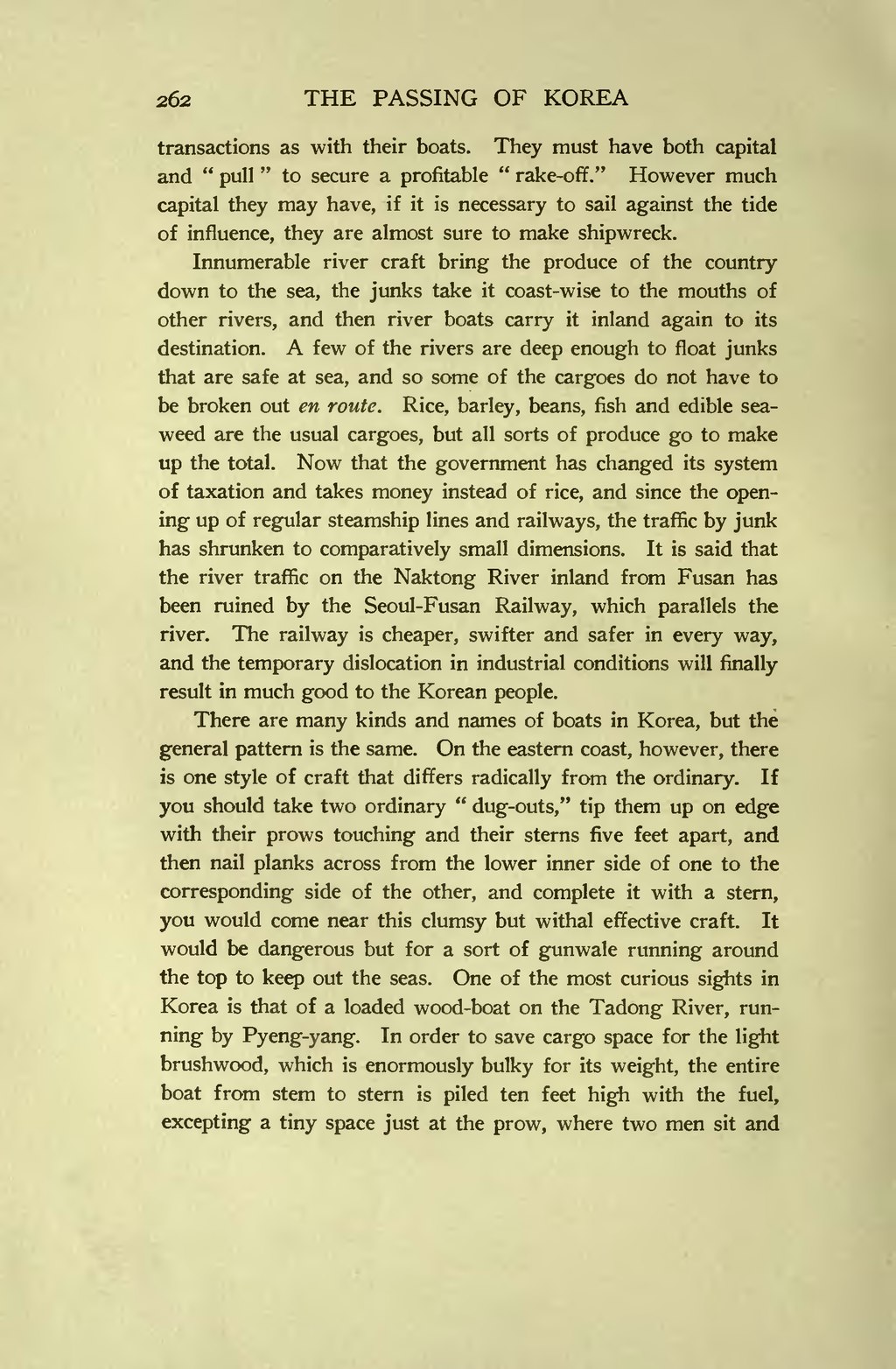transactions as with their boats. They must have both capital and " pull " to secure a profitable " rake-off." However much capital they may have, if it is necessary to sail against the tide of influence, they are almost sure to make shipwreck.
Innumerable river craft bring the produce of the country down to the sea, the junks take it coast-wise to the mouths of other rivers, and then river boats carry it inland again to its destination. A few of the rivers are deep enough to float junks that are safe at sea, and so some of the cargoes do not have to be broken out en route. Rice, barley, beans, fish and edible seaweed are the usual cargoes, but all sorts of produce go to make up the total. Now that the government has changed its system of taxation and takes money instead of rice, and since the opening up of regular steamship lines and railways, the traffic by junk has shrunken to comparatively small dimensions. It is said that the river traffic on the Naktong River inland from Fusan has been ruined by the Seoul-Fusan Railway, which parallels the river. The railway is cheaper, swifter and safer in every way, and the temporary dislocation in industrial conditions will finally result in much good to the Korean people.
There are many kinds and names of boats in Korea, but the general pattern is the same. On the eastern coast, however, there is one style of craft that differs radically from the ordinary. If you should take two ordinary " dug-outs," tip them up on edge with their prows touching and their sterns five feet apart, and then nail planks across from the lower inner side of one to the corresponding side of the other, and complete it with a stern, you would come near this clumsy but withal effective craft. It would be dangerous but for a sort of gunwale running around the top to keep out the seas. One of the most curious sights in Korea is that of a loaded wood-boat on the Tadong River, running by Pyeng-yang. In order to save cargo space for the light brushwood, which is enormously bulky for its weight, the entire boat from stem to stern is piled ten feet high with the fuel, excepting a tiny space just at the prow, where two men sit and
